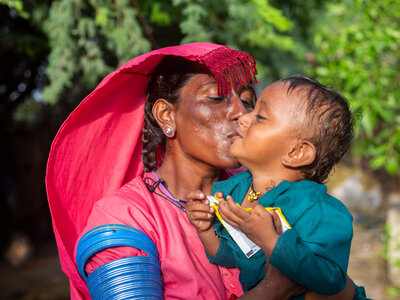Pakistan
- 20.7%
- of the population is undernourished
- 40%
- of children under 5 are stunted
- 241 million
- population
Despite progress, the nutrition and hunger situation remain serious in Pakistan, with a ranking of 109th out of 127 countries in the 2024 Global Hunger Index.
Pakistan is currently ranked as the 8th most vulnerable country to the impact of climate change, as seen during unprecedented floods in 2022. It struggles with high multidimensional poverty. Nearly half of an average household’s monthly expenditure goes towards food and 82 percent of the population cannot afford a healthy diet.
What the World Food Programme is doing in Pakistan
-
Nutrition
-
WFP continues to improve nutrition through policy and governance support, advocacy, nutrition programmes, fortification, evidence generation and innovation. WFP is partnering with the Benazir Income Support Programme to implement the Benazir Nashonuma Programme – a national stunting prevention programme that targets pregnant and breastfeeding women and children under 2 from the poorest households in the country. WFP also partners with some provincial Governments to pilot school-based programmes, treats acute malnutrition, and works with 150 small-scale wheat millers across key parts of the country to produce fortified wheat flour for their customers.
-
Resilience building
-
Sustainable food systems
-
Disaster preparedness and response
Pakistan news releases
Go to pagePartners and donors
Achieving Zero Hunger is the work of many. Our work in Pakistan is made possible by the support and collaboration of our partners and donors, including:
View all
Find out more about the state of food security in Pakistan
Visit the food security analysis pageOperations in Pakistan
Contacts
Office
Plot no. 1, Diplomatic Enclave No 1, Sector G-5, Islamabad.
Islamabad
Pakistan
Phone
+92-51-8312000
Fax
+92-51-8438251






